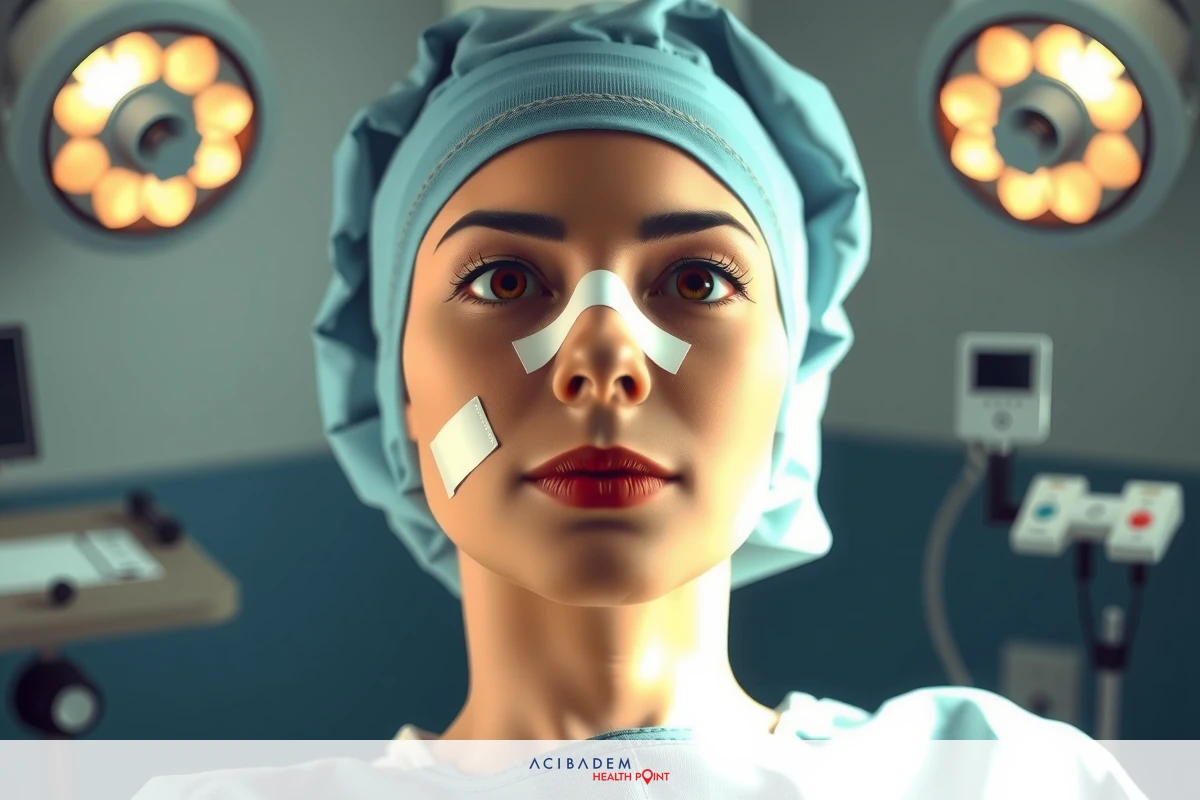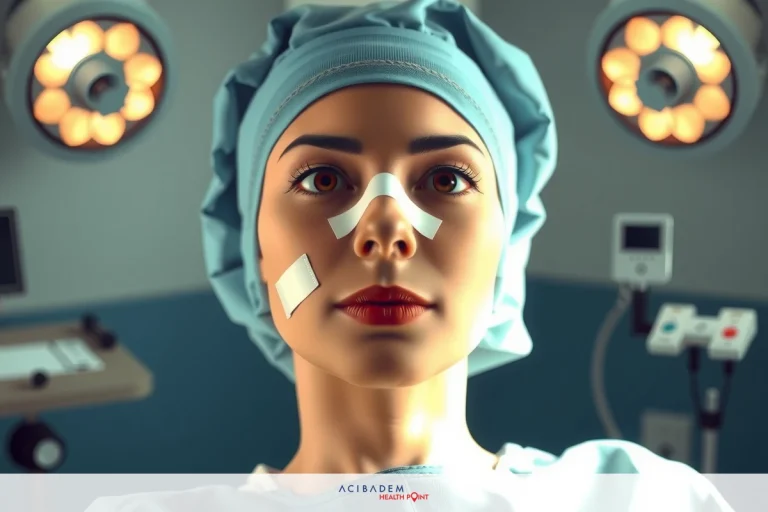How to Make Tip Drop After Rhinoplasty
How to Make Tip Drop After Rhinoplasty Rhinoplasty, commonly referred to as a nose job, can be a transformative experience. It is not devoid of potential complications. One of the issues that may arise postsurgery is the tip drop. This phenomenon occurs when the tip of the nose drops or sags after surgery, affecting the overall aesthetic result.
How to prevent tip drop can help patients maintain the results they desire from their rhinoplasty. An essential factor is choosing a skilled surgeon who specializes in this type of surgery. Furthermore, proper post-surgery care plays a crucial role in recovery and maintaining the desired shape. Lastly, taking precautions to avoid any trauma or injury to the nose during the recovery period can certainly contribute to preventing tip drop.
Choosing a Skilled Surgeon
In the quest to prevent tip drop after rhinoplasty, one of the most critical steps is choosing a skilled surgeon. An experienced surgeon with specialization in rhinoplasty is crucial as they have honed techniques and amassed knowledge that allows them to accurately predict and control the final outcome of the surgery. They are adept at understanding the intricacies of nasal anatomy and how each surgical maneuver can impact the long term results. This expertise is particularly invaluable when it comes to preventing post-surgery complications like tip drop.
The experience of a surgeon plays a significant role in the success of a rhinoplasty procedure. An experienced surgeon has likely dealt with a variety of nose shapes, sizes, and structures, and thus, has gained insights into what works best for different scenarios. They would have encountered issues like tip drop in their practice and developed strategies to counteract this problem. Therefore, an experienced surgeon can provide tailored surgical plans that consider potential tip drop scenarios, thereby enhancing your chances of an optimal recovery.
Finding a rhinoplasty specialist is another important aspect to consider. These specialists have dedicated their practice solely to performing rhinoplasty and related procedures, which means they have an in-depth understanding of the unique challenges and complexities associated with these surgeries. A rhinoplasty specialist would be well-versed with the most recent advancements and techniques in the field. They can implement these techniques to minimize risks such as tip drop, thus ensuring a smoother recovery process post-surgery. In conclusion, choosing a skilled, experienced, and specialized surgeon is an integral step towards preventing tip drop after rhinoplasty.
Proper Post-Surgery Care
Following a rhinoplasty surgery, the role of proper post-surgery care cannot be overemphasized in preventing tip drop. Your surgeon will provide you with detailed aftercare instructions that are designed to expedite your recovery process and minimize complications such as tip drop. These instructions often include advice on how to clean the surgical site, what activities to avoid, how to manage swelling and discomfort, and when to seek medical attention.
Adhering to these recovery tips is essential in maintaining the results achieved during the surgery. For instance, patients are typically advised to keep their head elevated, even when sleeping, for a certain period after the surgery. This is because keeping the head elevated can help reduce swelling and facilitate healing, which in turn, can prevent issues like tip drop. Additionally, patients are often instructed to avoid strenuous physical activities that could cause trauma or increased blood pressure in the face, as these could potentially disrupt the healing process and contribute to tip drop.
Moreover, it’s important to follow your surgeon’s instructions regarding medication usage post-surgery. Some medications might interfere with your recovery process and increase the risk of complications such as tip drop. It’s also crucial to attend all followup appointments with your surgeon. These appointments allow your surgeon

to monitor your healing process closely and intervene timely if any signs of potential problems like tip drop are detected. In conclusion, proper post-surgery care plays a significant role in preventing tip drop following a rhinoplasty procedure. By following the aftercare instructions provided by your surgeon meticulously, you can significantly enhance your chances of a smooth recovery and satisfactory results.
Avoiding Trauma to the Nose
In the weeks and months following rhinoplasty surgery, it is essential to be mindful of avoiding trauma to the nose. The nasal tissues are extremely delicate post-surgery, and any injury could disrupt the healing process, potentially leading to complications such as tip drop. Hence, gentle handling of the nose during this period is paramount. This includes being cautious when washing your face or changing clothes to prevent accidentally hitting your nose.
Preventing injury goes beyond just physical contact. Certain habits and activities can also indirectly cause trauma to the nose during recovery. For instance, avoid blowing your nose for a few weeks after surgery as this can increase swelling and pressure in the nasal area, possibly leading to tip drop. Wearing glasses or sunglasses that put pressure on the bridge of your nose should also be avoided during the initial recovery period. If you can’t avoid wearing glasses, solutions like using special tape or a protective splint can help distribute weight away from the nose.
Another critical aspect of preventing trauma involves being cautious with sun exposure. The skin on your nose may be more sensitive following surgery and susceptible to sunburn. Sunburn not only causes discomfort but can also lead to additional swelling or discoloration. Therefore, it’s advisable to use a high SPF sunscreen, wear a hat, or seek shade when going outdoors during recovery. In conclusion, taking precautions to avoid any trauma or injury to the nose is crucial in preventing tip drop after rhinoplasty. By being mindful of these factors and practicing gentle handling, you can facilitate a smooth recovery process and achieve satisfactory results post-surgery.
How to Make Tip Drop After Rhinoplasty: Frequently Asked Questions
How common is tip drop after rhinoplasty?
Tip drop is a potential complication that can occur after rhinoplasty surgery. However, with proper surgical techniques and post-operative care, the risk of tip drop can be minimized. It's important to consult with a skilled surgeon who specializes in rhinoplasty to ensure the best possible outcome.
Can tip drop be corrected after it occurs?
In some cases, if tip drop does occur, it may be possible to correct it through revision rhinoplasty. However, prevention is always preferable. By following pre- and post-surgery instructions provided by your surgeon, you can greatly reduce the likelihood of developing tip drop.
How long does it take for the nose to fully heal after rhinoplasty?
The complete healing process after rhinoplasty varies from person to person. Generally, it can take several months to a year for the nose to fully heal and for the final results to become apparent. During this time, it's important to follow your surgeon's instructions and be patient with the healing process.
Are there any specific exercises or techniques that can help prevent tip drop?
While there are no specific exercises or techniques that can guarantee the prevention of tip drop, following proper post-surgery care instructions is crucial. This includes avoiding trauma or injury to the nose, keeping the head elevated while sleeping, and refraining from activities that could increase blood pressure in the face.
Will insurance cover revision surgery if tip drop occurs?
Whether insurance will cover revision surgery for tip drop depends on your specific insurance policy and its coverage criteria. It is advisable to consult your insurance company directly to determine the extent of coverage for revision rhinoplasty.











